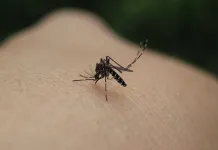(Press-News.org) HAMILTON, ON (August 16, 2023) – Some women with early-stage, low-risk breast cancer may not need radiotherapy after breast conserving surgery according to new research led by McMaster University, BC Cancer, Hamilton Heath Sciences, and the University of British Columbia.
The research, published in The New England Journal of Medicine on Aug. 17, shows women 55 or older with a specific subtype of Stage 1 breast cancer can be effectively treated with just surgery and endocrine therapy.
The findings, which were initially presented in June 2022 at the American Society of Clinical Oncology (ASCO) Annual Meeting in Chicago, have since been peer-reviewed and are now being published in full detail.
Women with early breast cancer who have breast conserving surgery typically receive radiation to the breast daily for several weeks to reduce the risk of cancer returning in the breast. However, radiation can be costly, inconvenient for the patient and associated with both short-term side effects – such as tiredness and skin irritation – and long-term side effects – such as breast pain and thickening of the breast tissue, which can affect how the breast looks and a woman’s quality of life.
The subtype of breast cancer that researchers focused on – luminal A – represents up to 60 per cent of all breast cancers diagnosed annually and is associated with a lower risk of recurrence. With this new approach, a significant proportion of women can be spared of radiation after breast conserving surgery. Eliminating the need for this group to receive radiation will allow women to avoid the side effects of therapy and can add capacity back into the public health care system, permitting increased access for those who require radiation therapy more urgently.
“This is a major advance in our treatment approach for breast cancer. With a better understanding of the molecular biology of breast cancer we can now identify women who do not need radiation,” said Tim Whelan, lead author of the study, a professor in the Department of Oncology at McMaster University and the Canada Research Chair in Breast Cancer Research. Whelan is also a radiation oncologist at Hamilton Health Sciences.
The study was coordinated by the Ontario Clinical Oncology Group at Hamilton Heath Sciences, and followed 500 women from across Canada who were 55 years of age or older, had undergone breast conserving surgery, and their tumours were smaller than two centimetres without cancer in the lymph nodes under the arm. The growth rate of a woman’s tumour was assessed with a simple, low-cost and made-in-B.C. version of a molecular test called Ki67, which provided a quantitative measure that the participant’s cancer was low-risk. In the trial, the luminal A sub-type was determined by a low reading on the Ki67 test plus the tumour having both the estrogen and progesterone receptors. If determined to be low risk, women were enrolled in the trial where they received standard endocrine therapy but not radiation. Radiation therapy is standard practice, so participants were monitored through regular clinical exams and annual mammograms. When planning the study, the investigators predicted that the risk of developing recurrence in the breast would be very low at five years.
At five years post-surgery, researchers found the recurrence of cancer in the breast was only 2.3 per cent without radiotherapy. This was roughly comparable with a 1.9 per cent risk of developing a new breast cancer in the other, untreated breast.
“I want to thank all the women who had the courage to sign up for this study. Their courage has led to a chance to improve care for many other women who we now know confidently will not need to undergo radiation therapy,” said Torsten Nielsen, clinician-scientist at BC Cancer and professor of Pathology & Laboratory Medicine, University of British Columbia. Nielsen developed the version of the Ki67 molecular test used in this clinical trial.
“The Ki67 test uses an inexpensive and easy method called immunohistochemistry, and can replace more costly and complicated testing methods. Ki67 uses an antibody applied to tissues and a simple chemical reaction to identify how fast tumours are growing. The test is affordable, open source and can be made available at hospital labs around the world,” said Nielsen.
The overall risk of cancer recurrence following breast-conserving surgery has decreased in recent years because of regular mammogram screening, improved surgical techniques and better systemic treatments, the authors say.
“We are increasingly able to individualize care for patients with cancer. Adding the simple and affordable Ki67 test allows us to identify patients who can avoid the inconvenience and side effects of breast radiation. This, indirectly, helps to ensure resources are directed to patients who benefit from radiation therapy,” said Sally Smith, Western Canada Regional lead for the study and radiation oncologist at BC Cancer - Victoria.
The hypothesis for the current publication was based on findings from a Toronto-BC study that was coordinated by Anthony Fyles and David McCready, of the Princess Margaret Cancer Centre. They found that adjuvant radiotherapy can reduce local recurrence of breast cancer, and that patients with favourable clinical features have a low risk. In an effort to further classify patient risk of recurrence who might avoid radiotherapy, and with support from Canadian Institutes of Health Research (CIHR), a translational study published in 2015 led by Fyles and first-authored by Fei-Fei Liu utilized the Ki67 molecular marker to identify a low-risk group of luminal A breast cancer patients. These findings came from a retrospective analysis and required clinical validation, leading to the current publication indicating that they can potentially be spared of radiotherapy.
The study received funding from the Canadian Cancer Society and the Canadian Breast Cancer Foundation.
-30-
For more information, or to arrange an interview, please contact:
Jennifer Stranges
Manager, Communications and Media Relations at McMaster University
Stranj4@mcmaster.ca or (289) 659-4387
Andrea Visscher
Communications Officer, BC Cancer, Provincial Health Services Authority
andrea.visscher@phsa.ca or (604) 842-1177
END
EMBARGOED FOR RELEASE UNTIL 4 P.M. ET, WEDNESDAY, AUGUST 16, 2023
MINNEAPOLIS – Only a small percentage of older adults who are in the early stages of Alzheimer’s disease meet the eligibility criteria to receive new monoclonal antibody treatments, drugs that target amyloid-ß plaques in the brain, an early sign of Alzheimer’s disease. The new research is published in the August 16, 2023, online issue of Neurology®, the medical journal of the American Academy of Neurology. Clinical trial results for these drugs are only available in people in the early symptomatic stages of the disease, mild cognitive impairment ...
Key points:
In a study of adults in the United Kingdom, those who adhered closely to a Mediterranean lifestyle—including eating a healthy, plant-based diet with limited added salts and sugars and getting adequate rest, exercise, and socialization—were found to have a 29% lower risk of all-cause mortality and a 28% lower risk of cancer mortality compared to those who were nonadherent to the lifestyle.
Adherence to Mediterranean lifestyle habits around adequate rest, exercise, and socialization was most strongly associated with lower risk of all-cause and cancer mortality, and was independently associated with a lower ...
UNIVERSITY PARK, Pa. — The historically high heat waves that gripped the southwest United States and southern Europe this summer are causing problems for more than just humans. Extreme heat waves affect pollinators and the pathogens that live on them, creating a mutual imbalance that could have major economic and public health consequences.
A global research team led by Penn State was the first to study how extreme heat waves affect the host-pathogen relationship between two species of solitary bees (Osmia cornifrons and Osmia lignaria) and a protozoan pathogen (Crithidia mellificae). The researchers recently published their findings in the journal Frontiers ...
WINSTON-SALEM, NC, August 2023 – Brinter Bio-Implant company joined the RegeneratOR’s Innovation Accelerator in 2023, located in the Regenerative Medicine Hub (RegenMed Hub), a rapidly growing regenerative medicine ecosystem based in the Innovation Quarter, in Winston-Salem.
Brinter is developing the world’s first personalized 3D bioprinted implants for meniscus repair using the company’s patented 3D bioprinting technology. The company’s bioprinters use a modular multi-material 3D bioprinting platform scalable from manual ...
WASHINGTON — Researchers have developed a fluorescence microscope that uses structured illumination for fast super-resolution imaging over a wide field of view. The new microscope was designed to image multiple living cells simultaneously with a very high resolution to study the effects of various drugs and mixtures of drugs on the body.
“Polypharmacy — the effect of the many combinations of drugs typically prescribed to the chronically sick or elderly — can lead to dangerous interactions and is becoming a major issue,” said Henning Ortkrass ...
In a new study, the attitudes of non-Muslim American participants towards Muslim Americans who identified strongly with both parts of their dual identity—Muslim and American—were just as positive as their attitudes towards Muslim Americans who identified only as American. In addition, exposure to dual-identified Muslim Americans was linked to more positive attitudes towards non-American Muslims. The same was also found in the American-Mexican context. Aharon Levy of Columbia University and Yale University, US, and colleagues present these findings in the open-access journal PLOS ONE on August 16, 2023.
Many prior studies have shown that people tend to have positive attitudes ...
Mosquito nets treated with multiple insecticides can control malaria when pyrethroid resistance leads normal nets to fail
###
Article URL: https://journals.plos.org/plosone/article?id=10.1371/journal.pone.0289469
Article Title: Effectiveness of dual active ingredient insecticide-treated nets in preventing malaria: A systematic review and meta-analysis
Author Countries: Australia, USA, Malawi
Funding: This work was funded by the World Health Organisation, APW202903809 The funder of the study had a role in the development of the protocol, the wording and development of the review questions, the interpretation ...
Shelter dogs followed at their new homes for six months post-adoption were reported as showing more behaviors like stranger aggression or training problems by the end of the study—but owner satisfaction remained high, with 94 percent of owners reporting their dog’s behavior as excellent or good, according to a study published August 16, 2023 in the open-access journal PLOS ONE by Kyle Bohland from the Ohio State University, US, and colleagues.
Although two million dogs are adopted from US shelters every year, very little research has been done on shelter dog behavior after placement into a home. Bohland and colleagues surveyed ...
In the wake of the 1918/1919 “Spanish flu” influenza pandemic, the probability of low birth weight and stillbirth increased among women in Switzerland, according to a new study published this week in the open-access journal PLOS ONE Kaspar Staub of the University of Zurich, Switzerland, and colleagues.
Impaired neonatal health is an ongoing public health concern worldwide. Understanding determinants that impede normal fetal and infant development and growth is crucial for ameliorating neonatal ...
Researchers at Rutgers and Emory University are gaining insights into how schizophrenia develops by studying the strongest-known genetic risk factor.
When a small portion of Chromosome 3 is missing – known as 3q29 deletion syndrome – it increases the risk for schizophrenia by about 40 fold. Researchers have now analyzed overlapping patterns of altered gene activity in two models of 3q29 deletion syndrome, including mice where the deletion has been engineered in using CRIPSR, and human brain organoids, or three-dimensional tissue cultures used to study disease. These two systems both exhibit impaired mitochondrial ...





